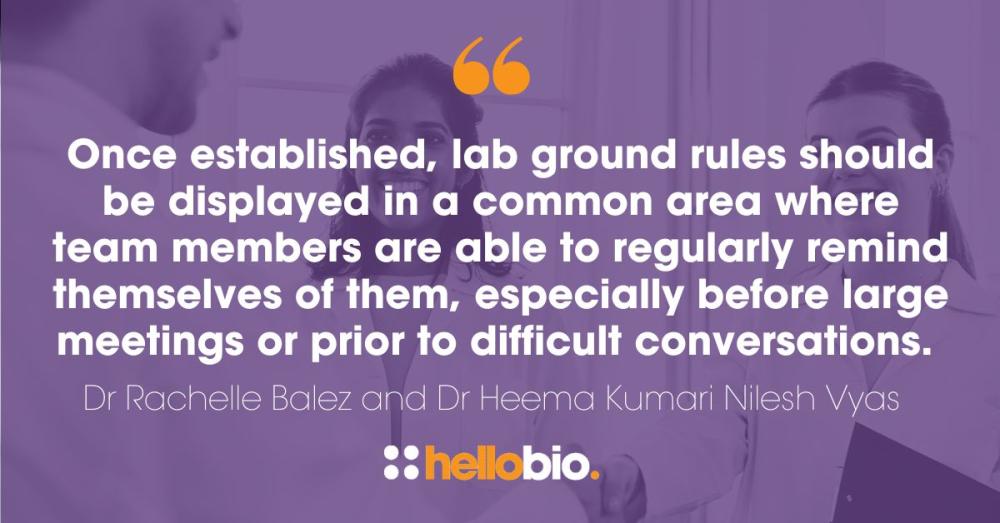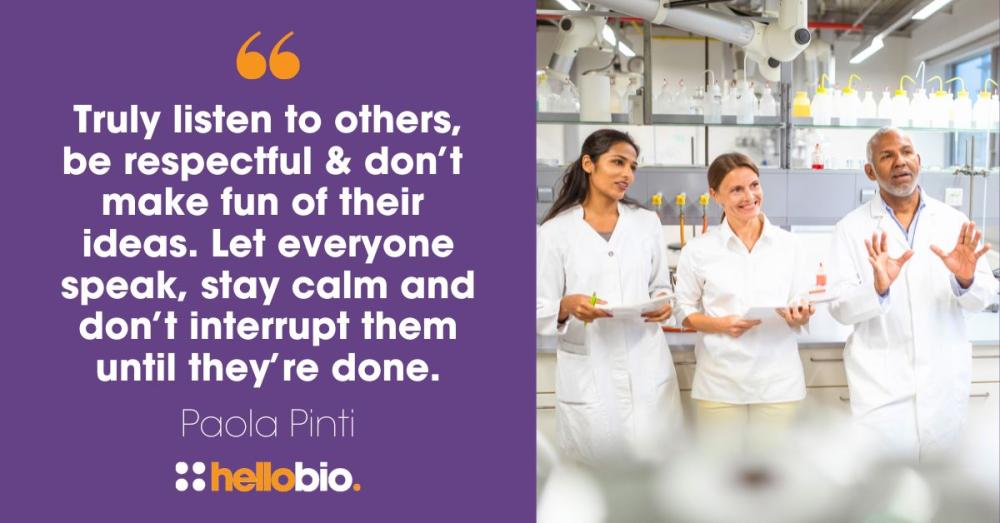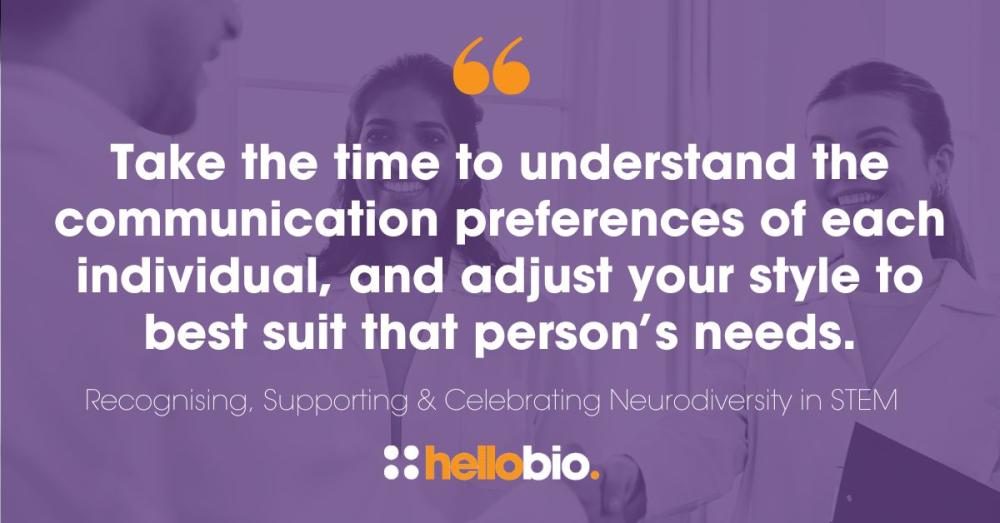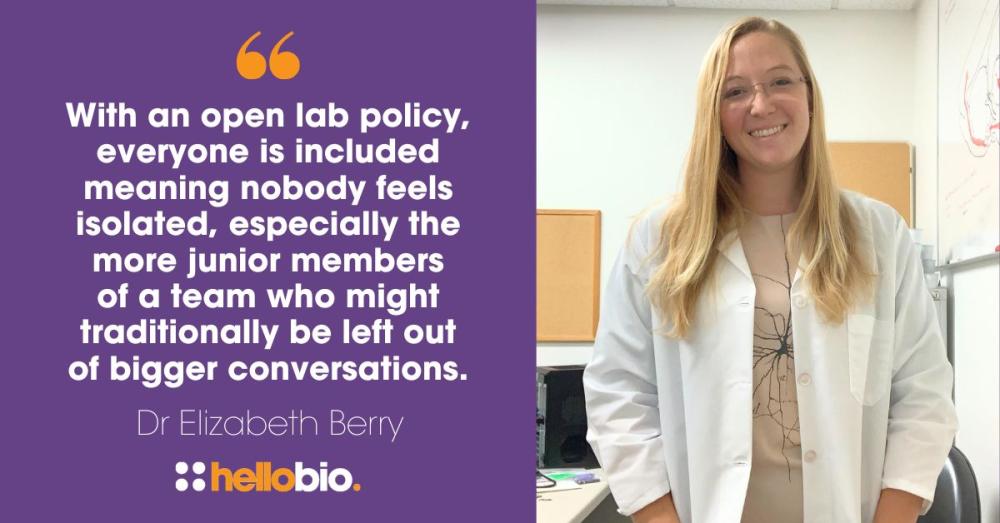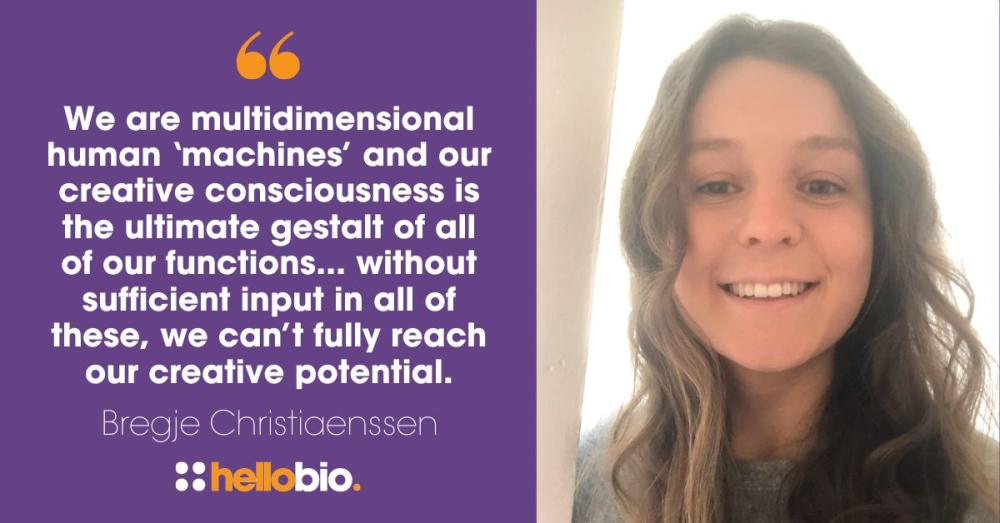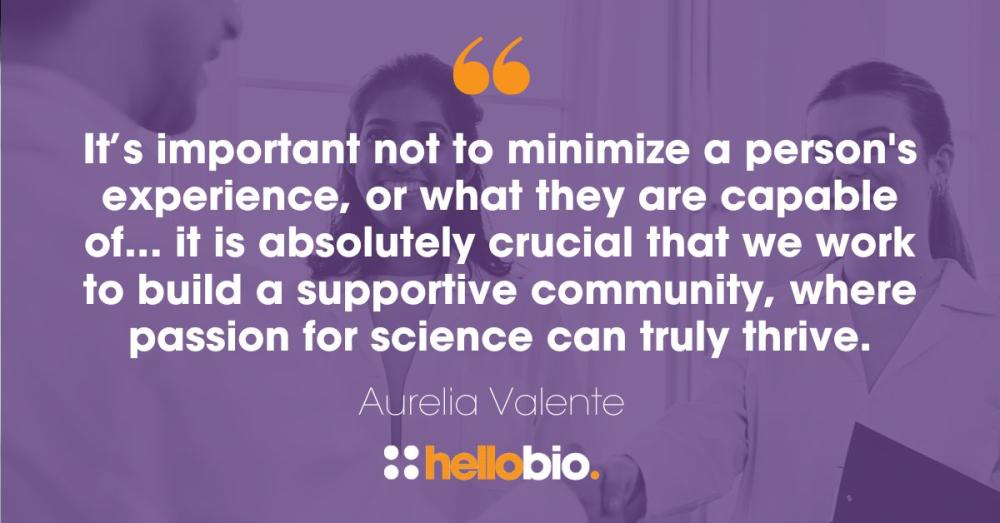The Life Scientists’ Guide to Lab Harmony
Every busy researcher knows that working in a science lab can be stressful at times. Tight deadlines, competition for funding, and failed experiments can all create tension among lab mates, making effective collaboration difficult to achieve sometimes. Being part of a strong team is essential, and having trust in and respect for your colleagues is vital for productive research and better results.
So what can lab leaders and their team members do to promote harmony within a science lab? How can you ensure that everyone gets along and that disputes are resolved swiftly and respectfully? Setting clear expectations, encouraging diversity, promoting transparency and celebrating successes are just a few of the things you can do to help to build an effective and harmonious team.
In this handy article we’ve gathered some great advice from life scientists who know what it takes to keep things running smoothly in the lab and to ensure everyone gets along. Check out the Life Scientists’ Guide to Lab Harmony!
1) Set clear expectations
From day one it’s essential for a lab team to understand what’s expected of them, and what to expect from each other. Setting out clear rules, roles, responsibilities and expectations for each lab member will provide a strong foundation on which to build a respectful and trusting team.
Establish the ground rules
Setting out a basic list of ground rules for the lab is a great way to manage expectations and ensure everyone is on the same page when it comes to working together effectively. In the article Workplace Wellbeing For Life Scientists, Dr Rachelle Balez and Dr Heema Kumari Nilesh Vyas share some valuable advice on setting basic rules within your lab: “Ground rules are agreed-to guidelines that define how individuals are expected to communicate, participate, collaborate, and support one another. Once established, they should be displayed in a common area where team members are able to regularly remind themselves of them, especially before large meetings or prior to having difficult conversations. It’s an efficient way to collectively define norms that allow lab groups to function in a respectful and inclusive manner – especially when important and complex decisions need to be made.”
Define your roles
Ensuring each lab member understands their individual role is vital for team building. When applying for a new job within a lab, applicants will usually be provided with an outline of the tasks and responsibilities that the position entails. However, it’s always helpful to not only clarify these details, but also to communicate clearly the responsibilities of others within the lab. This will ensure there is no ‘stepping on toes’ and will make potential future collaborations smoother and more effective.
Be a team player
As well as having defined roles as outlined above, it’s also important to remind colleagues that there will be times when delegation and the sharing of workloads is required. Despite having their own individual roles and responsibilities there will be occasions when everyone in the team will be required to pull together to get a particular job done or to meet an important deadline. Having colleagues who are team players is an important factor for any science lab to operate effectively.
2) Build trust and mutual respect
Once the foundations of expectation are laid, it’s important to begin building trust and mutual respect amongst lab colleagues. Most lab teams will be comprised of researchers at various levels within their career, from undergrad work placement students to lab leaders with decades of experience behind them. Encouraging mutual respect at all levels is vital and will help the team to work more closely and effectively together.
Listen to all ideas
Another important factor in building team camaraderie is to ensure everyone has a voice and that all ideas, no matter how small, are listened to and considered. In this guest blog by Paola Pinti, the author shares great advice for remaining open-minded within lab meetings, brain-storming sessions and wider group discussions. She said: “Truly listen to others and be respectful of their ideas. To best find solutions and make decisions, you have to feel confident and comfortable enough within the team to share and discuss your new ideas or problems, and you have to put the others in the same position. Do not make fun of others’ ideas. Let everyone speak, listen, stay calm and do not interrupt them until they’re done. Learning and sharing new things will not only lead to the team’s success, it will enrich your personal knowledge too!”
Be honest and transparent
Trust between colleagues will come naturally when everyone is honest and transparent with each other. Showing vulnerability in the workplace isn’t always easy, but being open and honest, especially when times are tough, can help everyone to pull together as a team and build even greater team morale. Every researcher, no matter the level of experience or seniority, will face challenges and need support from their colleagues at times. Being honest about your struggles will not only make delegation easier, it will also strengthen the bonds between you and your lab mates.
3) Communicate effectively
One of the most important factors for the smooth running of a team is to ensure that communication is clear, open and effective. Problems can fester and be made considerably worse by poor or non-existent communication between lab members. Learning to communicate well with each other is a key component of a strong team dynamic.
Be clear and open
Ensure that clear communication is encouraged and that vague language, particularly with regard to directions or instructions, is challenged and clarified. If you don’t understand exactly what is being asked of you, it’s likely that you won’t be able to complete the task or experiment to the best of your ability. If you are in a mentoring role, be sure to check in with your students to ensure they are comfortable and confident in what you have asked them to do, and that they fully understand the instructions or advice given to them. Using vague or overly-complicated language will ultimately be a waste of everybody’s time if everything has to be clarified and double-checked.
Consider alternative communication methods
Be aware that some team members may prefer to communicate in different ways, and might respond better to alternative methods. This is particularly relevant if you or a colleague are neurodivergent and find some types of verbal communication challenging, especially in group situations. In this article on the Hello Bio blog, we considered the types of communication challenges faced by neurodivergent researchers, and what colleagues should keep in mind when working alongside them: “Be mindful about how information is communicated, and be sure to use clear and direct language. Provide written instructions where necessary. PIs, lab managers and other mentors should take the time to understand the communication preferences of each individual, and adjust their mentorship style to best suit that person’s needs.”
Schedule regular lab meetings
If you’re the leader of a busy lab, it’s important to make time for regular group meetings in which team members can share their problems and concerns. When you are working to tight deadlines it can be tough to pull everyone away from the bench for group discussion time, however these sessions should be considered a priority, and allowing everyone a chance to be heard is very important.
Promote an ‘open-door’ policy
When senior lab leaders deal with problems ‘behind closed doors’ it can be detrimental to lab morale. During the Hello Bio LabLife Conference 2024, we hosted a panel discussion on Effective Leadership & Communication in the Lab in which three scientists shared their thoughts on communication styles and policies favoured by lab leaders. Dr Elizabeth Berry, an Assistant Professor at New York Medical College, stressed her belief that an open-door policy is best to ensure that nobody is isolated or excluded. She said: “A lot of lab mentors typically go to a ‘closed-door’ method instead of having an open lab conversation, and I think that's a mistake. With an open lab policy, everyone is included meaning nobody feels isolated, especially the more junior members of a team who might traditionally be left out of bigger conversations. It can also encourage others to open up more to their colleagues, rather than just festering with their thoughts alone.”
4) Resolve conflict quickly and fairly
Any team working closely in a high pressure environment will encounter conflict from time to time. This is absolutely normal and should not be seen as an indicator that the team is failing. Science research happens in a competitive and fast-paced environment, and disputes between lab members can arise for all sorts of reasons, but it’s how they are dealt with that matters. Ensuring problems are resolved quickly and fairly can help to maintain harmony throughout the whole team.
Equip team leaders with effective strategies
Lab leaders should attend training courses to learn effective strategies for conflict resolution. Remaining neutral is essential for ensuring fairness in these situations, and keeping a written record of the facts is another important requirement. In this article on conflict resolution, Professor Stuart Maudsley of the University of Antwerp refers to the data-gathering aspect at the ‘discovery phase’ of the process. He told us: “Conflict resolution is a bit like handling a legal case. As a manager, the first thing you want to do is the fact-finding work, what they call in the legal field 'discovery'. It’s only through this phase that you’ll truly begin to understand what has happened.”
Be ready to mediate
When a dispute arises between lab colleagues, it’s possible that another team member will be asked to act as a mediator. Again this is something that can be practised through training or management courses, and is a useful skill to have in all walks of life, not just in a professional environment. The role of a mediator is never to start, lead or dominate a discussion, rather to provide support so that both parties feel heard and that their feelings have been recognised and considered. In the same article, we considered ways in which mediators can diffuse situations by not assigning blame but by empowering both parties: “Try to gently guide the conversation towards a resolution where there is no ‘right’ person or ‘wrong’ person. Allow everyone to recognise and understand the feelings and emotions for all involved and to find a place where all parties are comfortable. This will often get to the true root of the problem without assigning blame.”
Draw positivity from conflict
Although conflict between lab mates can create negative energy in the workplace, always keep in mind that a smooth resolution can bring a huge boost of positivity to the lab. Clearing the air can work wonders for lab harmony, and those involved will usually learn a lot about their own communication styles in the process. Every difficult situation that arises is an opportunity to learn and grow stronger as a team.
5) Manage stress & promote wellbeing
Another simple way to improve lab harmony is to promote self-care and wellbeing within the team. Whether you’re a PI or a PhD student you’ll deal with high levels of stress at some point in your science career, therefore it’s important that everyone plays their part in spotting the signs of burnout in each other.
Bregje Christiaenssen, a PhD student at the University of Antwerp shared her thoughts in this article on finding a healthy work-life balance. She said: “It is important to pay attention to your own health, but we must also encourage colleagues and lab partners to do the same too. We are all multidimensional human ‘machines’ and our creative consciousness is the ultimate gestalt of all of our functions - endocrinological, cardiovascular, neurophysiological and psychological. Without sufficient input in all of these, we can’t fully reach our creative potential.”
Finding the right balance
It’s all too easy to put in those extra hours when a big deadline is looming, but try to find a work-life balance that allows for some rest and relaxation. There are so many simple things you can do to ease the strain during your working day, such as an outdoor coffee break with a colleague, some simple breathing exercises, or even a short meditation session. Making these stress-busting activities part of your daily routine will not only keep you calmer but will set a great example to those around you.
Engage in conversations on mental health
Despite mental health being a constant challenge for many busy researchers, it’s something that isn’t talked about often enough. Keeping your struggles to yourself might feel like the ‘professional’ thing to do, but it will almost always be detrimental to your long-term health. Encouraging conversation around mental health challenges in the lab is something that is highly recommended by Dr Noelia D Falcon of the University of East Anglia in this powerful guest article entitled on managing stress and anxiety in the workplace. She said: “I never talked about stress or mental health matters before my PhD. I worried that my colleagues would think I was weak, or making a big deal out of a small problem. This is a stigma that is taught to us early on, and it must be broken if we are to recognise these problems and take action before they take over our lives. It’s important to remember that simply talking or writing about mental health can help and inspire others.”
6) Encourage diversity and inclusion
Another way to ensure everyone feels comfortable in the lab is to ensure it is an environment that celebrations diversity and promotes inclusion for all. Great science comes from collaboration and working with people from different walks of life and with different perspectives can only benefit your research. For lab leaders it’s important to promote equality and fairness in all areas of the workplace, and to ensure that nobody faces discrimination or micro-aggressions.
Consider the needs of others
Think about the needs of those around you and make accommodations if necessary. Additional needs may relate to a hidden disability or a neurodivergent trait which makes certain areas of research work more challenging. In this fantastic guest article by Aurelia Valente, she discusses her experiences as a disabled scientist and shares the small changes that colleagues and lab leaders can make to ensure the lab is inclusive and accessible. She emphasises the importance of being part of a supportive community: “Everyone has unique identities and experiences, and it’s important not to minimize a person's experience, or what they are capable of contributing. We all contribute to the scientific atmosphere; if we want to genuinely make advancements, then it is absolutely crucial that we work to build a supportive community, where passion for science can truly thrive.”
Challenge discrimination
Be aware of specific issues of discrimination faced by female, black, and LGBTQ+ scientists. Even in today’s progressive society these groups are still minorities within the world of science research, and they often face additional hurdles when striving for success in STEM. Be an ally by advocating for colleagues from minority groups, and be prepared to call out acts of discrimination when you see them. Demonstrating that you ‘have their back’ in these scenarios will strengthen morale and overall confidence in the team.
7) Celebrate successes
We know that life in a science lab can be tough, and as scientists we all face rejection and failure on a fairly regular basis. That’s why it’s important to celebrate the wins when they come and to enjoy success as a team when it happens. Being part of a strong and close-knit team means being a cheerleader for each other in the good times as well as the bad!
Enjoy each other’s company outside the lab
Try to have some time together away from the pressure of a busy lab. Social time is vital for team bonding, and it could be something as simple as grabbing a coffee or taking the time to have a proper lunch break with one or more of your colleagues. Special events such as birthdays should be acknowledged, and it’s nice to celebrate grant awards or paper publications over a drink or two. You’ll find you get to know your colleagues better outside the lab, and strengthening these bonds will improve your ability to work well together when you’re back at the bench!
Awards and recognition
Take the time to tell your colleague when they’ve done something great. It can be a fantastic morale-booster and lift for the whole team, and could be something as simple as a note or card, or something more significant, such as a nomination for the Hello Bio Lab Heroes Awards 2024!
__________________________
If you enjoyed this article, why not check out the other resources available on our blog. We are passionate about supporting life scientists including early career life scientists and PhD students - with really low-priced reagents, antibodies and biochemicals, early career scientist grants, and resources to help with both personal and professional development. We know how tough it is - so we hope you find these helpful!
More General Support for Life Scientists
For advice on wellbeing, dissertations, presenting at conferences, wellbeing, PhD support, networking and lots more, we have a huge range of articles to help - just click below:
Save up to 50% on our high purity reagents...
When you get to the stage of planning your experiments, don't forget that we offer a range of low-cost, high-purity agonists, antagonists, inhibitors, activators, antibodies and fluorescent tools (yes - they really are around half the price of other suppliers!) You can use our Quick Multi-Search Tool to search for lots of products in one go, and the range includes:
- Enzyme inhibitors and activators
- Chemogenetic ligands
- Ion channel modulators
- GPCR & ionotropic receptor ligands
- Cell biology reagents & biochemicals
Technical resources
Try our Molarity Calculator: a quick and easy way to calculate the mass, volume or concentration required for making a solution.
Try our Dilution Calculator: an easy way to work out how to dilute stock solutions of known concentrations
We also offer a comprehensive range of technical resources including antibody protocols and methods, product guides and mini-reviews:
And finally, don't forget to check back in with our blog regularly for our latest articles. If there’s something you’d love to contribute to the community, whether that’s an interview or article, drop us a line at hello@hellobio.com
---






